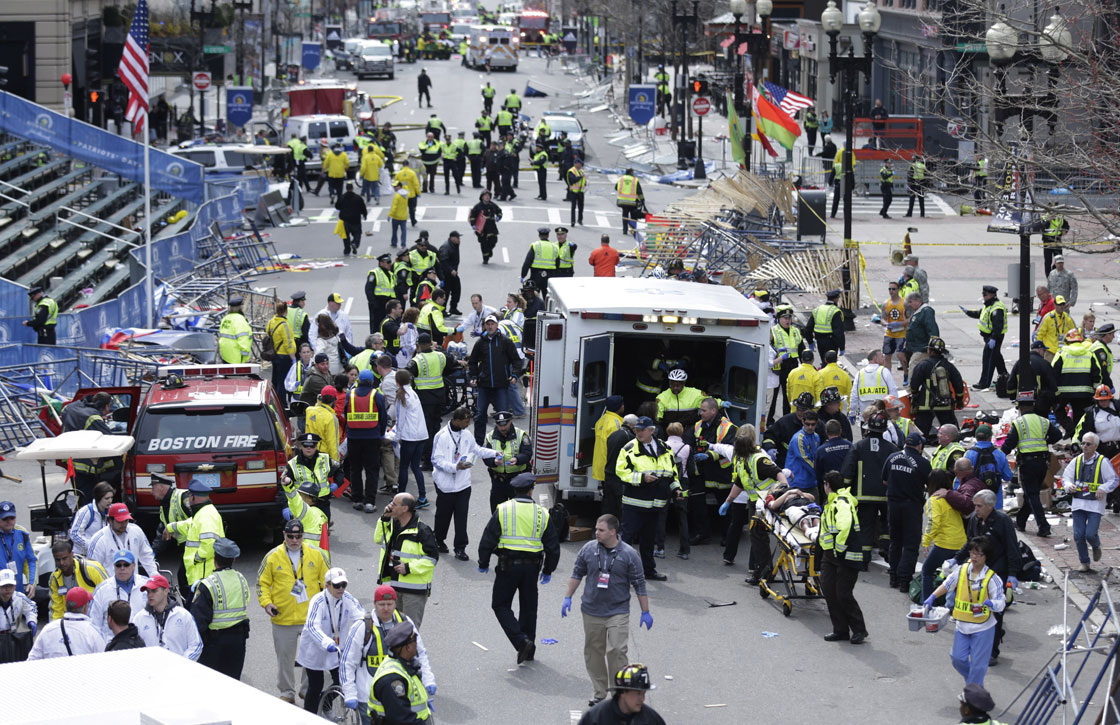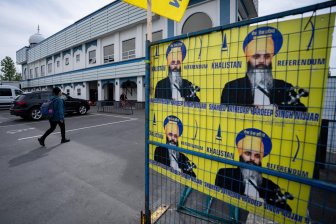Boston’s links to Canada run deep.

In 1981, American journalist and professor Joel Garreau wrote a book called the Nine Nations of North America. In it, Garreau argued that the North American continent is not divided at the 49th parallel, but rather it is made up of nine distinct cultural nations.
One of those nations, Garreau argued, was an expanded version of the existing State of New England that would include Canada’s Atlantic provinces. The capital for this greater nation of New Canadian-England would be the city of Boston.
Putting aside 200 years of history and applying that more accurate measure of cultural symbiosis known as hockey, and Joel Garreau may not be that far from the truth. As any Haligonian will eagerly share, easterners are far more likely to cheer on their beloved Bruins instead of those dreaded Maple Leafs. And if that doesn’t convince you of our shared cultural bond, take a drive on the I-90 through the Berkshires or the I-95 into Maine and you’ll stumble upon a Tim Horton’s or two.
As the video footage of the bombing played over and over again Monday night on the American news networks, one couldn’t help but spot a Canadian flag hanging on the balcony of a building overlooking the finish line.
Let it serve as a quiet reminder that as Americans grieve their loss and come to grips with their shock, they can look north to that Canadian flag as a calm reminder of support and goodwill in the midst of senseless carnage.
Here are your morning reads:
Louis Menand writes that the events that unfolded in Copley Square will now forever be known as the Patriots’ Day Bombing.
- Suspect in killing of temple leader Hardeep Singh Nijjar got student visa in ‘days’
- ‘Summer of discontent’ coming over public service in-office order: unions
- Panera to remove ‘Charged Sips’ drink from Canada amid wrongful death lawsuits
- Minister Boissonnault to testify before ethics committee over ties to lobbyist, PPE company
It was a day that Harvard historian, Jill Lepore, writes in the New Yorker, was already filled with deep historical significance.
E.J. Dionne writing in the Washington Post describes the day as Patriots’ Day defiled.
Scott Lehigh expressed the resolve of Bostonians in an Op-Ed for the Boston Globe:
“We’ll take reasonable precautions, yes. But we won’t take cover. And we won’t cower. This, after all, is Boston.”
Also in the Globe, David Abel writes a chilling first-hand account from the scene.
Being an academic city, there are many people in the Boston-Cambridge area that study war zones thousands of miles away. As MIT media researcher, Matt Stempeck writes, coming to grips with that reality in their hometown is going to be hard to fathom.
The New Republic recounted what it was like for the runners who weren’t able to complete their 25th mile.
The Boston Marathon is one of the most elite marathon’s in the world. Caroline McCarthey writes that for those in the running community, the attack was not just an attack on their city but on their sport and on their lifestyle.
As Roger Robinson writes, it’s the end of innocence for those in the professional running community.
Dave Zirin takes a triumphant tone in the Nation, recounting the marvelous story of Kathrine Switzer, the first woman to run the Marathon.
Finally, Bruce Schneier writing in the Atlantic, attempts to provide a path forward on how to cope with the attacks without seeking retribution:
“Empathize, but refuse to be terrorized. Instead, be indomitable — and support leaders who are as well. That’s how to defeat terrorists.”
If you’ve come across an article worth sharing, please let us know in the comments below.




Comments